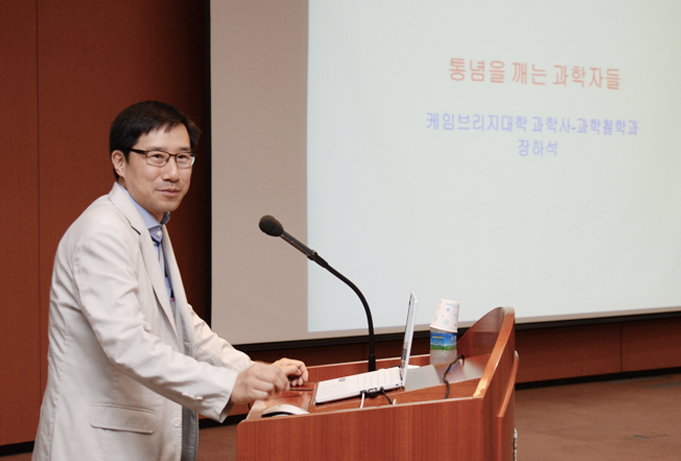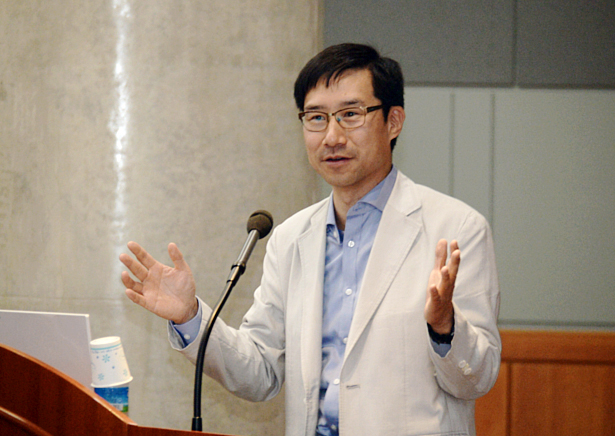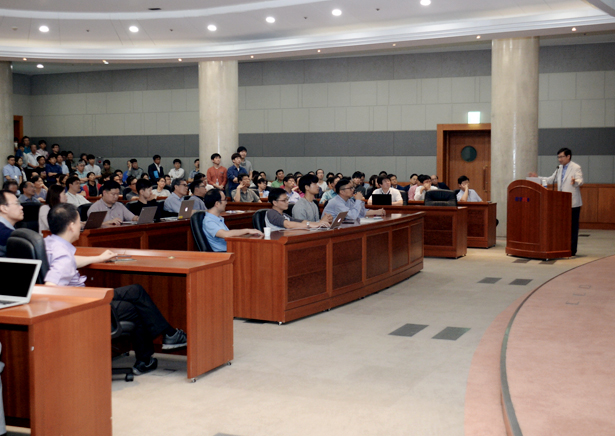
Exploring Questions for Scientific Philosophy
Invited Lecture Delivered by Professor Hasok Chang
was packed with researchers enthusiastic to discover the answers to that question.
A special invited lecture was held by Prof. Hasok Chang of the University of Cambridge, a privileged scholar in scientific philosophy.
The speaker and ETRI researchers took the opportunity to engage in a passionate interaction.



